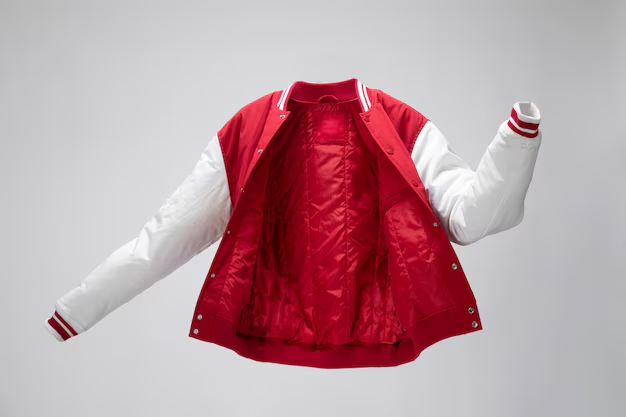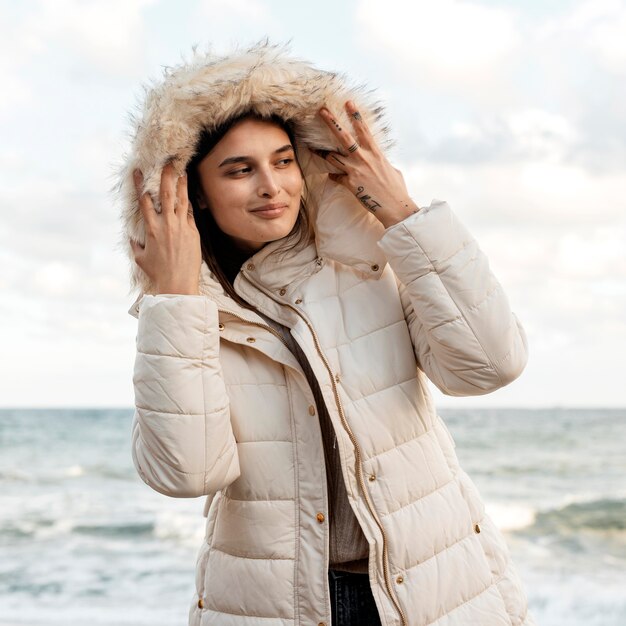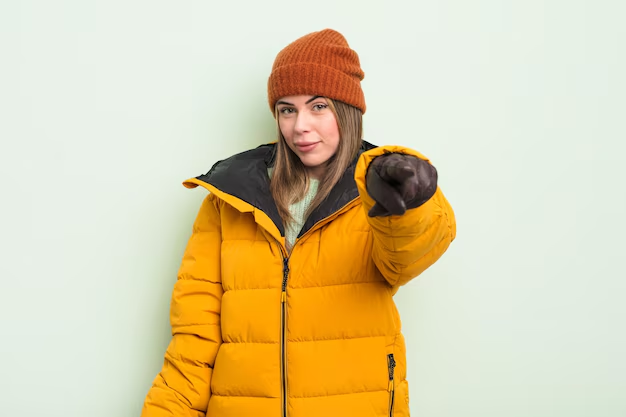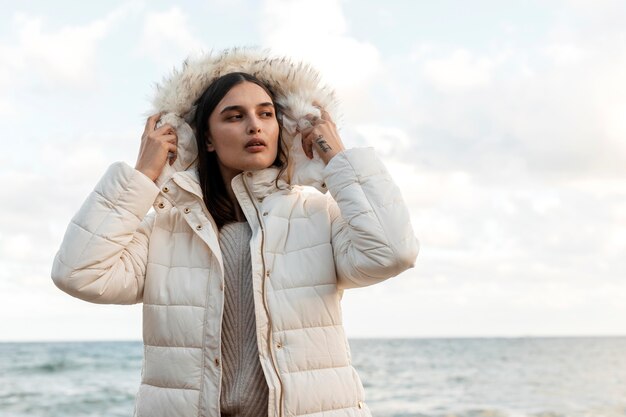The Antora Jacket from The North Face is a favorite among outdoor enthusiasts, blending style with functionality. Ever thought about making your own? DIY sewing patterns can turn a piece of fabric into a personalized piece of gear. Let’s dive into how you can craft your very own Antora Jacket!
Understanding the Antora Jacket
Design Features
Material and Fabric
The antora jacket north face sewing pattern is typically made from durable, weather-resistant materials. Think lightweight nylon with a bit of stretch—perfect for outdoor adventures!
Color Options
Available in various colors, the jacket allows for personal expression. Choose a vibrant hue or a classic neutral—whatever fits your style!
Functionality
Weather Resistance
One of the standout features of the Antora Jacket is its ability to shield you from the elements. It’s designed to repel water and wind, making it an essential for unpredictable weather.
Storage Options
With strategically placed pockets, the Antora Jacket offers functionality without sacrificing style. Store your essentials safely and accessibly!

The Benefits of Making Your Own Antora Jacket
Custom Fit
One of the biggest perks of sewing your own jacket is achieving that perfect fit. No more one-size-fits-all dilemmas!
Personalization Options
From fabric choices to design tweaks, sewing allows you to create a jacket that’s truly your own.
Cost-Effectiveness
Making your own Antora Jacket can be more affordable than buying one from the store, especially if you use discounted fabric or have some supplies at home.
Materials Needed for the Antora Jacket
Recommended Fabrics
For an Antora Jacket, opt for lightweight, breathable, and waterproof fabrics. Look for options like ripstop nylon or polyester.
Essential Tools for Sewing
Make sure you have a good sewing machine, sharp scissors, pins, and thread that matches your fabric.
Optional Accessories
Consider adding features like a detachable hood or adjustable cuffs to enhance functionality.
Finding the Right Sewing Pattern
Where to Buy or Download Patterns
Many websites offer sewing patterns for the Antora Jacket. Look for downloadable options that can be printed at home!
Choosing the Correct Size
Always refer to the sizing chart provided with your pattern to ensure the best fit.
Step-by-Step Guide to Sewing the Antora Jacket
Preparing Your Materials
Start by gathering all your materials and tools. This will make the process smoother and more enjoyable.
Cutting the Fabric
Lay your fabric flat and carefully cut out the pattern pieces according to the instructions.
Sewing the Main Body
Start by sewing the front and back pieces together. Follow the pattern instructions closely, ensuring you use the correct seam allowances.

Read Also: eileen-fish-steel-slim-tank-with-lace
Adding Sleeves
Once the body is assembled, it’s time to attach the sleeves. Align them carefully and pin before sewing to prevent any shifting.
Constructing the Hood
The hood is a defining feature of the Antora jacket. Follow the pattern to attach it securely to the neckline. Don’t forget to add any necessary drawstrings!
Assembling the Jacket
Attaching Sleeves
Begin by sewing the sleeves to the body of the jacket, following the pattern’s guidelines.
Adding Zippers and Pockets
Incorporate zippers and pockets as specified in your pattern, ensuring functionality and style.
Finishing Touches
Hemming
Once everything is assembled, hem the edges for a clean finish.
Adding Labels
If you’re feeling fancy, add a label to your creation to give it that professional touch!
Tips for Sewing Success
Common Mistakes to Avoid
Double-check your measurements before cutting and ensure your sewing machine is set correctly to avoid frustration.One common mistake is not checking your seam allowances. Make sure you’re consistent throughout to avoid issues later.
Helpful Sewing Techniques
Using a walking foot can help manage thicker fabrics, especially when working with layers. This can make your sewing process smoother and more enjoyable.
Sewing Techniques for Beginners
Don’t hesitate to practice on scrap fabric before diving into your jacket. It’s a great way to build confidence!
Resources for Further Learning
Consider watching online tutorials or joining sewing groups for extra support and tips.
Customization Options
Want to make your jacket uniquely yours? Here are some ideas.
Adding Pockets
Pockets are not just practical; they can also add character to your jacket. Check your pattern for pocket options, or create your own!
Changing the Hemline
Feel free to play with the hemline! Whether you want a cropped look or a longer fit, you can easily modify the pattern to suit your style.

Care and Maintenance of Your Jacket
To keep your jacket looking fresh, follow these care tips.
Washing Instructions
Always check the fabric care instructions. Most jackets can be machine washed on a gentle cycle.
Storing Your Jacket
When not in use, hang your jacket or store it folded in a cool, dry place to maintain its shape.
Preparing to Sew
Preparation is key to a successful sewing project.
Pre-Washing Your Fabric
Wash and dry your fabric to pre-shrink it. This step prevents any surprises after you’ve sewn your jacket!
Cutting the Fabric
Lay out your fabric and pattern pieces according to the layout instructions. Use weights to hold the pattern in place while cutting for accuracy.
Conclusion
Antora jacket north face sewing pattern is not just about making a garment; it’s about creating a piece that fits your life perfectly. So, gather your materials, follow the steps, and get ready to show off your custom creation!
FAQs
Can I modify the pattern for different sizes?
Absolutely! Most patterns are designed to be adjustable.
What fabric is best for the Antora Jacket?
Look for lightweight, waterproof materials like ripstop nylon.
How long does it take to sew the jacket?
Depending on your skill level, it may take a few hours to a couple of days.
Are there any online tutorials available?
Yes, many sewing websites and YouTube channels offer step-by-step tutorials.
What sewing machine settings should I use?
Refer to your fabric type; generally, a straight stitch and a medium tension work well for most materials.


